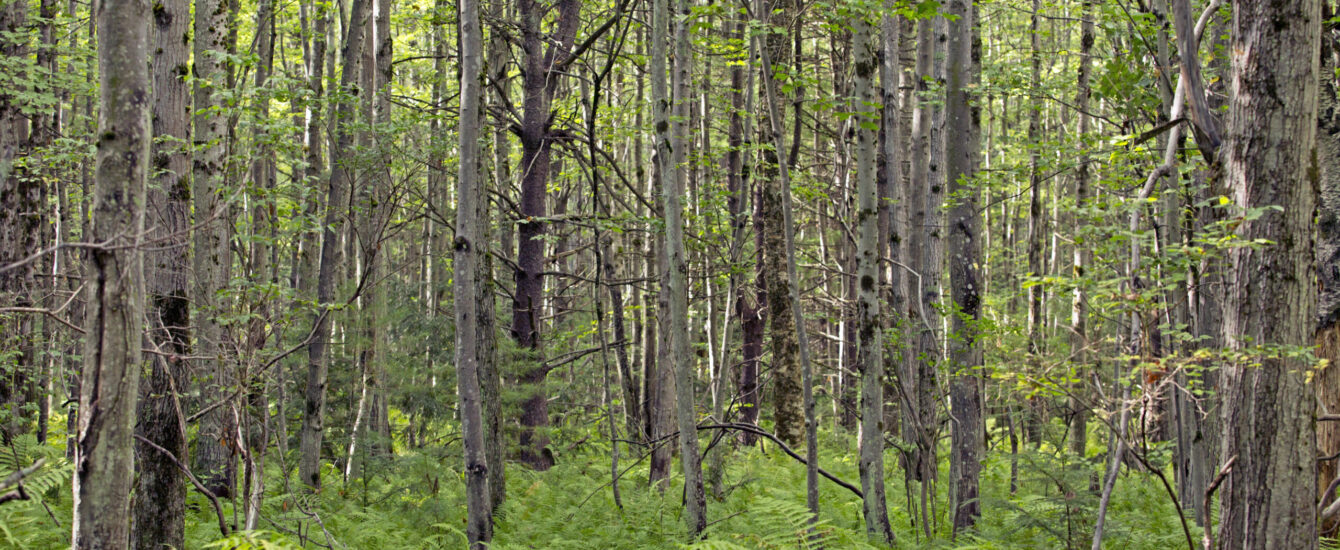Forests are a globally-significant store of carbon, but this store is vulnerable to release from disturbance processes such as harvesting or fires that contribute to global warming. At the same time, intact forests serve as a major offset to rising CO2 concentrations as forest growth becomes stimulated by rising CO2 levels. The balance of these processes is constantly changing and it varies widely from region to region. Marsh Institute Researcher Christopher Williams (Geography) recently received funding from The Nature Conservancy to provide the data, scientific analyses, and communications needed for quantifying the full climate impacts (e.g., carbon emissions and forgone carbon sequestration) of potential forest loss in the conterminous US. The project Avoided Deforestation as a Climate Opportunity in the U.S. will also extend previous work by including the albedo-induced radiative forcing and associated CO2 equivalent emissions that would be caused by avoiding forest conversion.
For full project descriptions, see the Marsh Institute Research Projects web page.

